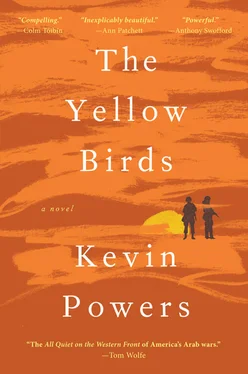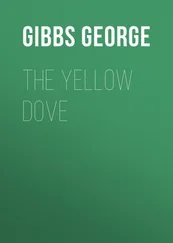The ghosts of the dead filled the empty seats of every gate I passed: boys destroyed by mortars and rockets and bullets and IEDs to the point that when we tried to get them to a medevac, the skin slid off, or limbs barely held in place detached, and I thought that they were young and had girls at home or some dream that they thought would make their lives important. They had been wrong of course. You don’t dream when you are dead. I dream. The living dream, though I won’t say thanks for that.
I made my way to the only open bar in the terminal and sat down on a stool that looked as if it had been brought from the factory that night. Everything about the bar and the airport was new and sterile. The tiles on the floor were clean and I saw where minute trails of remaining dust were left in my wake as if to guide me back. I ordered a beer and put my money on the bar. It was light wood lacquered to a mirror shine and I saw my face in the strange piney reflection and scooted my stool back a bit. A janitor swung a mop down the long tile path between the gates, and I took a swallow of my beer and glanced at the fine particles of dust I’d left on the floor in my wake.
“Hey, boss,” I said.
He was older, but not old, and he dragged the mop over to me and folded his arms across the end of the pole.
“I hate to bug you, but would you mind if I ran that mop across the floor there.” I started to get up to take the mop across the streak I’d left on the floor when I saw him look down.
“Why…there’s nothing on that floor, son. Don’t worry about it.” He reached out to pat my shoulder, but I turned back to the bar and grabbed my beer and finished it. I pointed to the bar and put more dollars on top of the ones the barman had not yet collected.
“I’m sorry. I just thought…,” and I must have drifted off because I did not see him move. I saw instead the mop head swaying across the floor in narrow arcs where I’d been pointing. He walked off dragging the dirt gray of the mop’s fringes down the concourse behind him.
The bar was polished to a mirror shine and even the windows that looked out onto the runway cast our reflections back on us because of the strange way the yellow light filled the airport. I kept drinking.
“Coming from or going to?” the bartender asked.
“Coming from.”
“Which one?”
“Iraq.”
“You going back after?”
“Don’t think so. Never know,” I said.
“Y’all watching your backs over there?”
“Yeah. Doing our best.”
“Damn shame, if you ask me.”
“What’s that?”
“I just hate that y’all have to be over there.”
I tipped my beer up to him. “Appreciate that.”
“We ought to nuke those sand niggers back to the Stone Age.” He started to wipe down the bar. I finished my beer and put five bucks on the bar and asked for another. He set it down in front of me. “Turn the whole place into glass,” he said.
I didn’t answer.
“Whole place is full of savages, is what I hear.”
I looked up at him. He was smiling at me. “Yeah, man. Something like that.”
My flight was one of the last of the night. I heard the loudspeaker announce that the Richmond-bound plane was taxiing into place. The pile of money was still on the bar. “I owe for the beers,” I said.
He pointed to a yellow ribbon pinned on the wall between a signed eight-by-ten glossy of a daytime soap star and a faded newspaper clipping of a man with a giant catfish splayed over the hood of a red Ford pickup with a rusted front quarter panel.
“What does that mean?”
“On me.” He smiled. “It’s the least I can do.”
“Forget it. I want to pay.” I didn’t want to smile and say thanks. Didn’t want to pretend I’d done anything except survive.
He reached out to shake my hand and I picked up the money and handed it back to him and turned and left.
The pilot made an announcement when all the passengers had taken their seats. Said how honored he was to be giving an American hero a ride home. Fuck it, I thought. I got four free Jack and Cokes out of the deal and a little extra legroom. Then, late in the night, as we flew through a black starless sky above the Eastern Seaboard, as planes carrying other soldiers took off with their noses pointed toward high school friends and eighteen-year-old girls, toward field parties and the banks of streams and ponds, along which young boys would pace out hours in silence after taking the freckled shoulders of those girls into their hands, their hands feeling skin beneath a flip of red or blond or brown hair, and not knowing what to do, those same hands folding as if in prayer, praying without even knowing they are praying, “God, please don’t let the world be always slipping from me,” and leaving the bright fires and laughter, leaving the rings of cars in fields, passing through the center of the circles that the headlights made, stumbling into the underbrush where they’d feel the balled fist of their loneliness grip some bone inside their chest like it was the slightest and most brittle bone God ever made, after all this, I dropped into a drunken sleep. I dreamed of the wood planks on my mother’s porch, the warmth of the sun they held long after sunset, lying there on the warm wood in the cool air thinking only of the sound of the bullfrogs and cicadas on the water, hoping I would dream only of that sound.
And then I was there, simply and without qualification. I sat with my cheeks in my hands out by the smoking area, distracting myself by counting the wads of chewing gum that dotted the concrete, when the sound of a motor approached. I did not raise my eyes. It took her hands on my face to rouse me from my preoccupations.
She pressed hard into the hollows of my cheeks and then stepped back. “Oh, John,” she said. Again she advanced and grabbed me hard around my waist. Her hands pushed and rubbed my body. She patted down the front of my uniform and brought her hands back to my face and she pressed down again. I could see that her hands were a little more wrinkled than I recalled, thin bones seen even from the palm side. Had it only been a year? Her grasp was firm, and she touched me hard as if to prove I was not a fleeting apparition. She touched me as though it was the last time she might.
I pulled her hands from my face and held them together out in front of me. “I’m fine, Ma,” I said. “Don’t make a scene.”
She began to cry. She didn’t keen or bellow, she just said my name over and over again, “Oh John, oh John, oh John, oh John.” When I took her hands from against my cheeks she wrenched one loose and slapped me hard across the mouth and tears welled up in my eyes and I laid my head on her chest. I had to reach down to do it because she was small. She held me there and kept repeating my name, saying, “Oh, John, you’re home now.”
I don’t know how long we stood there like that, with me hunching down to be embraced, but I forgot the sounds of the motor and the people walking past, I forgot the travelers who called out their thanks to me. I was aware of my mother and of her alone. I felt as if I’d somehow been returned to the singular safety of the womb, untouched and untouchable to the world outside her arms around my slouching neck. I was aware of all this, though I am not sure how. Yet when she said, “Oh, John, you’re home,” I did not believe her.
It wasn’t a particularly long ride home in her old Chrysler over the interstate. Half an hour or so. In that time I found myself making strange adjustments to the landscape. We passed over the World War II Veterans Memorial Bridge, which spanned the James, and I stared out at the broad valley below. The sun coming up and a light the color of unripe oranges fell and broke up the mist that hung in the bottomland.
Читать дальше












